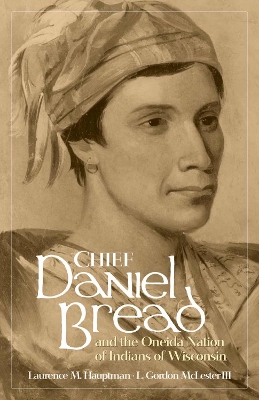The Civilization of the American Indian
2 total works
Chief Daniel Bread and the Oneida Nation of Indians of Wisconsin
by Laurence M Hauptman and L. Gordon McLester
Bread was often criticized for his support of acculturation and missionary schools as well as for his working relationship with Indian agents; however, when the Federal-Menominee treaties slashed Oneida lands, he fought back, taking his people's cause to Washington and confronting President Andrew Jackson. The authors challenge the long-held views about Eleazer Williams's leadership of the Oneidas and persuasively show that Bread's was the voice vigorously defending tribal interests.
The Oneida Indians in the Age of Allotment, 1860-1920
by Laurence M Hauptman and L. Gordon McLester
Sixteen WPA narratives included in this volume tell of Oneida struggles during the Civil War and in boarding schools; of reservation leaders; and of land loss and other hardships under allotment. This book represents a unique collaborative effort between one Native American community and academics to present a detailed picture of the Oneida Indian past.

